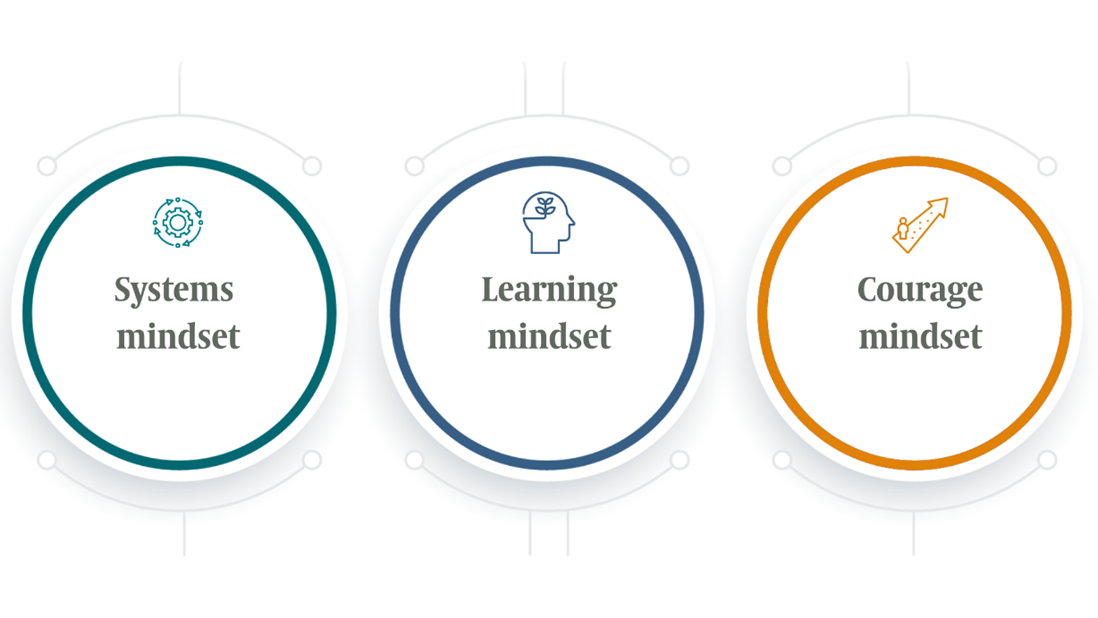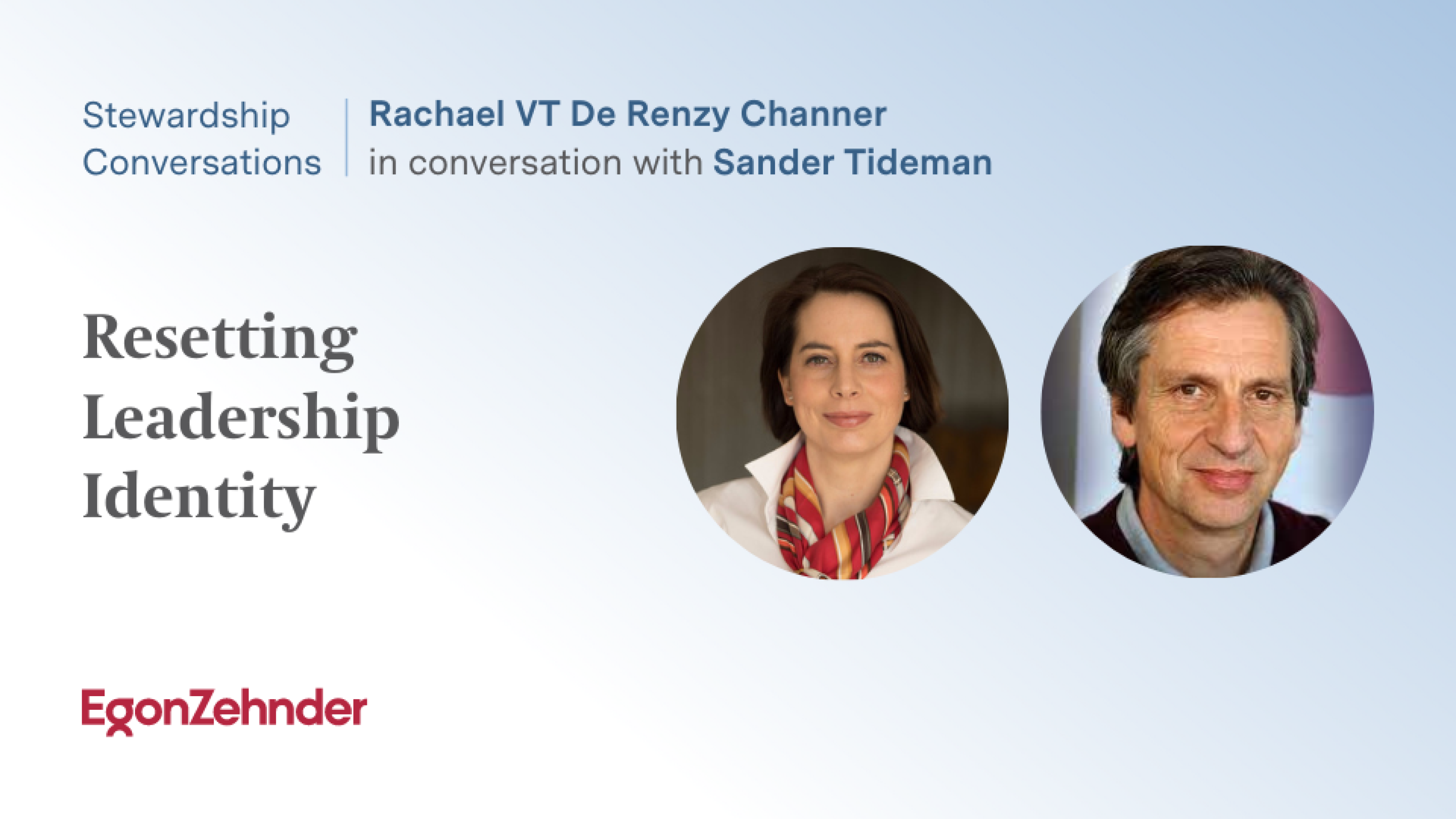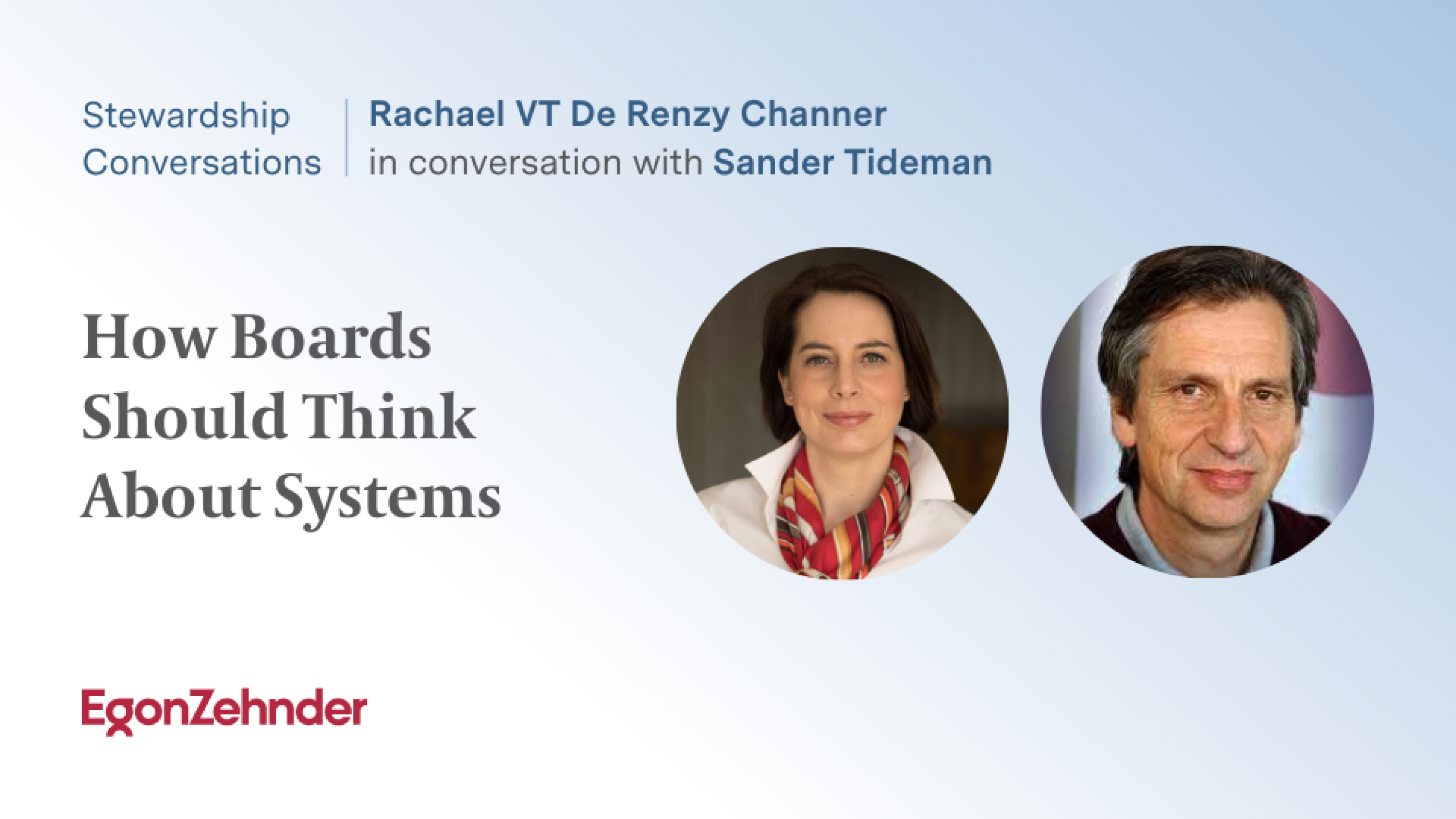In his book "Triple Value Leadership," Sander Tideman presents a compelling sustainability leadership framework aimed at cultivating sustainable value within organizations. Intrigued by his ideas and driven to explore the concept of systems thinking, I had the privilege of sitting down with Sander to delve deeper into his journey and insights. As an accomplished leader and dedicated coach for other leaders, he advocates for breaking traditional leadership paradigms and embracing inner growth.
During our conversation, Sander emphasizes the essence of leadership as the ability to reframe challenges into opportunities and growth prospects. He urges us to focus passionately not only on the outer journey but also on nurturing our inner selves. By challenging our mindsets and breaking free from conventional notions, Sander believes that we can find relief and witness improved performance in both our personal and professional lives.
Read on for the highlights from our insightful conversation:
Given your background in international law, banking and investment, what was the seed of your interest in sustainability, and how did it evolve?
The “aha!” moment happened during the time I worked (in banking) in China in the 90s and was responsible for the emerging markets in Asia. There was incredibly rapid change with money pouring in and technology coming in. I observed that even though these were called emerging markets, there were collapsing ecosystems and societal structures at the same time.
This made me awaken to the model we have as a whole, the capitalist growth model, and how we don't seem to reconcile the damage of the system with the system itself. I felt that we should do a better job in terms of economic development. “Sustainable development” was a term that arose at that time at United Nations summits, so I felt compelled to join the movement.
How do you define your purpose?
I work with leaders to make sense of complex systems issues. When it comes to sustainability, leaders navigate very complex systems. At the same time, this is about our inner journey, the way we see the world, our worldviews, our mindset. I see myself as a guide for leaders to make sense of their outer journey and their inner journey as well.
How can leaders find a sense of purpose as they navigate complex systems with the potential to be overwhelmed or threatened?
The very definition of leadership is the ability to reframe challenges into opportunities and growth opportunities. It's also inner growth, inner capacity as a leader.
We spend a lot of time thinking about and celebrating the “outer journey”, do you think the “inner journey” can be neglected?
Yes. And with all the lists of things that CEOs and leaders of all sorts have on their plate, things that they need to get done, it could feel like an afterthought.
It's actually a kind of relief to discover that if you work on yourself, the inner dimension, the inner self, you actually also improve your outer performance. Getting to that point is a pathway that people can discover, and it’s a choice. One that brings great relief and a great opportunity for positive change at many levels. It also represents a paradigm shift. Sustainability is one facet of it, but wellbeing is another facet. We need to take care of ourselves, not just our people and the communities that we're part of. That requires a different paradigm, a different mindset, worldview. Ultimately, it makes you happier and more effective.
When trying to identify traits and characteristics in leaders, what are the most important leadership traits? When there's a big to-do list, what do you think the most important traits are?
1. I think the systems mindset is number one. The “wise,” I call it.
2. The learner is number two. I call it “the learner” in my book.
3. And then purpose, from which follows the “courage mindset”. Purpose enables you to follow your heart.

You take people on journeys of discovery; what surprises you most about people's transformation?
We define ourselves as leaders or as human beings through narrative, and then we create a sense of identity “this is who I am.” People learn to see that narrative can be changed, it can be rewritten. By inviting them to be in nature, and ask them to zoom out physically, emotionally, mentally from their challenges and go back to who you were as a kid, the narrative can loosen up a little bit. Through reflective practice, physical relaxation, dialogue and coaching, there are openings for re-scripting your narrative, and then you can see miracles happening. When you give them some tools to be that authentic self or their future selves, the one they would like to become, then there is more energy, more passion, more purpose. And then suddenly, shifts can happen.
A leader who is transforming to meet modern challenges in the way that we've described, how do they survive and thrive in an organization that perhaps is going through transformation and hasn't fully accepted a new version of leadership?
You see a lot of young people, students or young leaders who are very impatient and very depressed because they don't see the organization moving fast enough. But if you know you're on the right path, then you can have more empathy, more compassion for those who are lagging behind. If you want to be the brand of choice, if you want to be the employer of preference, if you want to be the favorite of impact investors, you need to move the needle towards sustainability, shared value, triple value creation. It's an inevitable process. That gives you a sense of purpose.
What makes a successful systems thinker?
It starts with zooming out. Dream big, look into the future, envision possibilities, and give yourself and your organization time to realize these. On the one hand, we have just a few decades to make the change. But on the other hand, civilization won't just stop, right? We will have setbacks, certain parts of our society will suffer, but as a whole, humanity will continue, at least in the foreseeable future. So many of our dreams can be made real. We can actually contribute to a better, more sustainable future. From that, you can also have more courage. So, zoom out, dream big, take a step into the unknown, and continue to make contributions.
What advice would you give to boards thinking about systems?
Boards have a crucial role. I come across boards that take their job very seriously from a responsibility viewpoint, an accountability viewpoint, and of course, they have that mandate, but at the same time, they can be creative and generative as well. They can redefine a little bit like the leader that needs to reframe his identity. Boards can also reframe their identity as custodians for the common good, for society and sustainability, and be a little bit more creative and generative rather than overlooking and seeing where all the risks are and all the liabilities. It's a shift from accountability to creativity. They have a team journey to go on.
Who inspires you?
It's the Dalai Lama. I worked with him quite closely, and I observed him as a true leader because he is so open and he had his dialogues with business leaders, with scientists, with people from completely different backgrounds, but he had such an open mind. He was such a great listener that even when he said, "I don't know," the power of his attention, and his power of not knowing yet being in a state of curiosity, interest, compassion, and empathy was just remarkable. And from that space, a lot of solutions came. So having an open mind (not knowing) and finding solutions are related.
I view Tideman’s perspectives as an open invitation for leaders to see themselves differently. These ideas and insights are a call to action for leaders to look inwards and understand that working on themselves as leaders and humans first is the key to unlock a systems-wide transformation. By applying a new lens to our view on the world, and our role in advancing responsible business, we may come to see that purpose and performance go hand in hand.
Those who consider the “inner journey” as potentially self-indulgent and detrimental to “performance” are doing a disservice to their own potential. Sander challenges us to tackle both the inner and outer journey. Embarking on this journey is worthwhile and requires significant courage in the face of the range and complexity of the challenges we face today.







